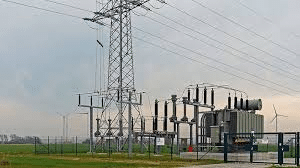For businesses in Canada, managing electricity costs is a critical concern that can significantly impact their bottom line. Various factors, including seasonal fluctuations, regulatory changes, and market demand, influence these expenses, necessitating effective and proactive strategies to optimize energy usage and reduce costs. Here are four major challenges associated with managing electricity costs in Canada:
Fluctuating Energy Prices
A primary challenge is the fluctuation in energy prices. In Canada, electricity prices can vary significantly due to factors such as changes in fuel costs, weather conditions, and supply and demand dynamics. These fluctuations can lead to unpredictable energy expenses, complicating budgeting and financial planning for businesses and households alike. To mitigate price volatility, companies should stay informed about market trends and consider strategies such as hedging or fixed-rate contracts. Additionally, investing in energy-efficient technologies and renewable energy sources can provide more stability over time.
Regulatory Changes
The regulatory landscape for electricity in Canada is complex and ever-evolving. Different provinces have distinct regulations and policies that influence electricity pricing and management. Changes in government policies—such as updates to carbon pricing, renewable energy incentives, and efficiency standards—can significantly impact electricity costs. Businesses must stay abreast of regulatory developments and adjust their energy management strategies to remain compliant and optimize costs.
Walmart Canada exemplifies an organization adept at managing the complexities of electricity costs. Faced with fluctuating energy prices and evolving regulations, the company adopted a comprehensive sustainability strategy. This approach includes energy-efficient technologies, on-site renewable energy generation, and participation in demand response programs. Through investments in LED lighting, advanced HVAC systems, and solar panels, Walmart Canada has significantly reduced its energy consumption and expenses. Furthermore, their proactive engagement with regulatory bodies and anticipation of policy changes have ensured compliance while enhancing operational efficiency.
Infrastructure and Grid Reliability
Aging infrastructure and grid reliability present significant challenges. Maintenance needs, grid congestion, and inefficiencies can lead to increased expenses. In some regions, businesses may face higher costs due to necessary upgrades and investments in grid modernization. To ensure reliable access to electricity while managing costs, businesses should invest in energy-efficient technologies and explore alternative energy sources, such as on-site generation or renewable energy systems. Active Business Services exemplifies how companies can effectively manage electricity costs despite these challenges. Active Business Services reviews show that businesses can effectively manage electricity costs through a combination of strategic planning and leveraging expert advice. Active Business Services reviews can be incredibly helpful for businesses looking to manage their electricity costs effectively.
Demand Management
Effectively managing electricity demand is crucial for controlling costs, especially during peak usage times when rates are higher. To reduce consumption during these periods, businesses should implement demand management strategies, including energy-efficient equipment, load shifting, and demand response programs. By optimizing energy usage and reducing peak demand, companies can lower their overall electricity costs and enhance their sustainability profile.
Navigating the complexities of managing electricity costs in Canada involves addressing challenges like fluctuating energy prices, regulatory changes, infrastructure reliability, and demand management. Businesses must stay informed, adopt proactive strategies, and invest in energy-efficient technologies to control their electricity expenses, improve financial stability, and contribute to a more sustainable future.
